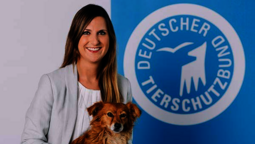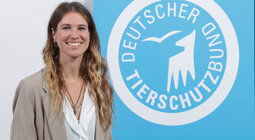In view of rising energy prices, the German Animal Welfare Federation and Pro Wildlife warn against buying “exotic” animals as pets. Keeping these demanding wild animals requires various technical aids, which are characterized by high energy requirements. As a result of rising energy prices, the associations fear a “flood” of surrendered or abandoned exotic animals in animal shelters.
“If the price of electricity rises to 50 cents per kilowatt hour, the UV lighting alone will cost around 230 euros a year to keep a bearded dragon. Added to this are further operating costs for daylights and other technical equipment as well as food and veterinary costs. This quickly adds up to 500 to 800 euros per year for a small lizard,” says Patrick Boncourt, reptile expert at the German Animal Welfare Federation. It is to be feared that some pet owners will hardly or no longer be able to afford such high husbandry costs in the future. “Over the next twelve to eighteen months, we expect to see a significant increase in the number of animals handed in or abandoned across Germany,” says Boncourt. This development would hit the numerous smaller animal shelters in particular, most of which are not prepared to house and care for exotic reptiles, parrots or mammals. Boncourt therefore strongly advises against buying exotic animals - especially as the private keeping of these demanding wild animals should be viewed critically anyway. Anyone interested in adopting turtles, parrots, snakes and the like from an animal shelter should make absolutely sure that they will be able to afford the rising costs of keeping them in the future without any problems.
REGULATION OF EXOTIC ANIMAL KEEPING AND TRADE URGENTLY NEEDED
The current energy crisis is likely to exacerbate what is already a problem: Time and again, spontaneous purchases of exotic animals, along with a lack of or incorrect advice, lead to husbandry costs being misjudged, animals not being kept in a species-appropriate manner or owners wanting to get rid of them sooner or later. “There is an urgent need for action,” says Katharina Lameter from Pro Wildlife. “Although Germany is one of the world's largest sales markets and transshipment points for exotic pets, politicians have so far failed to put a stop to the uncontrolled growth of the pet trade with a positive list and a certificate of competence. A positive list would specify which animal species are suitable as pets and may continue to be traded and kept. Various aspects such as animal and species protection must be taken into account.” In addition to the positive list, Pro Wildlife and the Animal Welfare Federation are also calling for future pet owners to prove that they have the necessary specialist knowledge before acquiring an animal - and are therefore ultimately also aware of the costs of keeping them.







